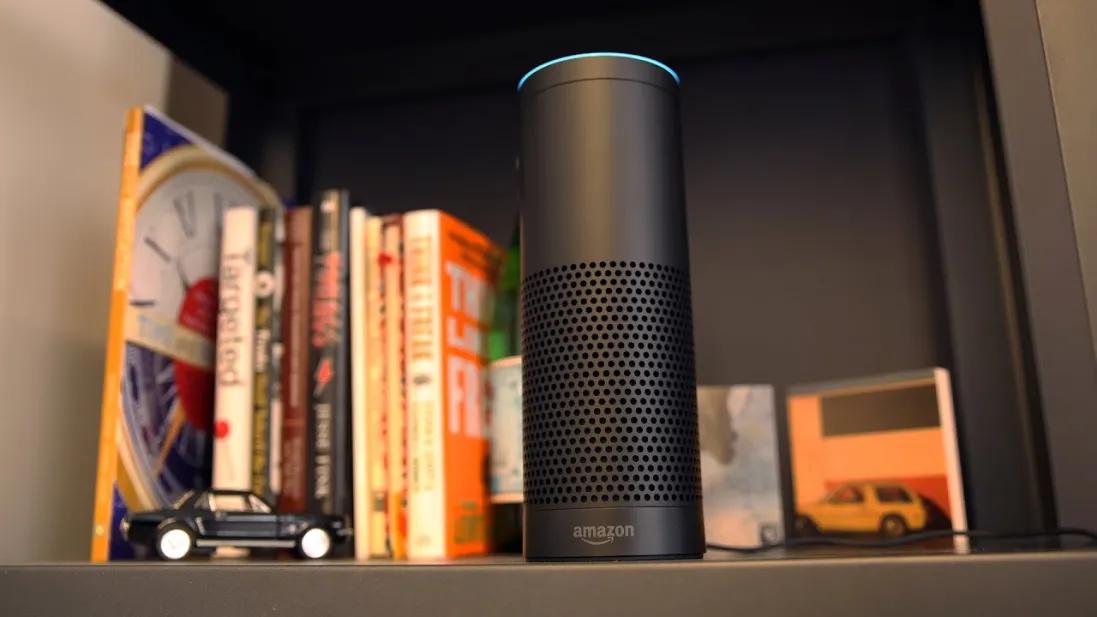|
|
I don’t think we could ever put a price on protecting students.
— Andy Meyer, Principal at Skyview High School
|
|
|
Happy Thursday! And welcome back to Snippets 👋 Here's what's been happening at the intersection of privacy and tech:
- Amazon announced plans to remove the local processing option for all Echo smart speakers
- Use of AI surveillance in schools is increasing
- California's Attorney General kicked off a sweeping investigation into how businesses collect and process geolocation data
- And so much more!
|
|
|
|
|
Amazon moves Echo voice processing to the cloud
|
 |
|
Shutterstock
|
Starting March 28, 2025, Amazon will remove the local processing option for all Echo smart speakers—meaning all data, including voice commands, instructions, and other user interactions, will be processed in the cloud.
|
- This shift coincides with the introduction of the AI-powered Alexa+ tier, though even non-Alexa+ users will have their data processed externally, with no true option for opt-out.
- Users can choose to not save their recordings, but those users will lose access to the voice ID feature, as the speaker can’t distinguish between users without maintaining a voice recording.
- In a statement, Amazon reassured users that its cloud infrastructure is well-protected.
- However, with the company’s history of keeping voice recordings and transcripts indefinitely, as well as allowing employees to listen to recordings to improve the product, significant concerns remain.
|
|
|
|
|
|
|
Join Transcend at IAPP Global Privacy Summit 2025 🎪
|
|
IAPP's Global Privacy Summit is coming up quick, and Transcend is excited to once again be exhibiting as the Title Sponsor for privacy’s biggest event of the year!
From expert panels to live demos, we'll be on the floor showcasing how Transcend is transforming privacy challenges into business value with industry-leading automation.
We’ll also be offering professional headshots at the Transcend Lounge, giving away brand new swag at Booth #5, and hosting the 'Wicked' LGBTQ+ afterparty.
|
|
|
|
|
|
|
|
AI surveillance in schools: Friend or foe?
|
 |
|
Illustration by Gabriel Campanario/ The Seattle Times
|
With adoption surging during the pandemic, schools are increasingly relying on AI-driven tools to scan student emails, search queries, and documents—and then automatically alert school officials to potential risks.
|
- But after a major breach exposed nearly 3,500 student records, experts are warning that a lack of adequate safeguards could lead to major data breaches and an erosion of student trust.
- The technology has also outed LGBTQ+ students, mistakenly flagged creative writing as threats, and raised false alarms.
- While some argue these tools have helped prevent crises, the evidence is largely anecdotal—with little research showing a direct connection between use of these tools and a reduction in self-harm or violence.
|
|
|
|
|
|
|
|
California launches investigation into geolocation data collection
|
 |
|
Getty
|
California Attorney General, Rob Bonta, has announced a sweeping investigation into how businesses collect, process, and use consumer location data—specifically, the relationships and data flows between mobile app providers, data brokers, and advertisers.
|
- Data brokers in the US have long operated with little oversight. Even the proposed US federal privacy law, the American Privacy Rights Act (APRA), refrained from limiting data collection—instead favoring a self-reporting system for brokers.
- In a push for stronger safeguards for geolocation data, California lawmakers proposed a bill that would ban the collection of such information unless strictly necessary and the individual has given explicit consent.
- With the sensitive nature of location data, privacy experts welcomed the crackdown—though some warn that California’s overly broad definition of data brokers could negatively affect some services, like weather apps, that rely on such information.
|
|
|
|
|
|
|
|
- U.S. wants the Apple vs. UK encryption hearing made public.
- Bluesky proposes a new feature to give users more data control.
- New York’s AG reaches $650,000 settlement with social app.
- DuckDuckGo roasts Google’s Incognito Mode in new commercial.
- BraX3 aims to launch a privacy-focused Google-free smartphone.
|
|
|
|
|
|
Pokémon GO buyout sparks surveillance concerns
|
 |
|
TechCrunch
|
Pokémon GO, a popular augmented reality game with over 100 million monthly users, was recently sold to Scopely, a mobile game maker owned by the Saudi Royal Investment Fund—raising concerns about user privacy and surveillance.
|
- Even before the acquisition, Pokémon GO’s creator, Niantic, had a reputation for collecting detailed user data, including location and images of sensitive locations.
- With Scopely being owned by Saudi Arabia, a country with a history of surveillance and human rights abuses, experts are concerned that data collected in the game could be used to monitor and control citizens.
- Compounding these concerns is the game’s Visual Position System (VPS), which – when combined with Niantic's vast data collection – could give the Saudi government unprecedented surveillance capabilities, including inside buildings and military sites.
|
|
|
|
|
|
|
|
UK’s online safety laws set a model for the US
|
 |
|
Photo Illustration: Jonathan Hurtarte/Bloomberg Law
|
Legislators in the UK and US are increasingly concerned about how AI and manipulative design affect minors' online behavior—introducing a spate of bills that focus on reducing excessive screen time and addictive features.
|
- The UK has implemented the Age-Appropriate Design Code, meant to restrict algorithm-driven engagement features and profiling of minors, as well as the Online Safety Act, which seeks to limit the spread of harmful content.
- Several US states, including California and New York, are implementing laws that would restrict platforms from offering addictive feeds to minors and require data impact assessments.
- Other states, like Colorado and Texas, are introducing measures such as health impact notices and parental control tools to limit minors' screen time.
- Though the lack of a national standard in the US has introduced compliance complexities, platforms are urged to proactively adjust their features to comply with emerging laws.
|
|
|
|
|
|
|
Understand the latest US state privacy laws in seconds ✅
|
|
Nineteen US states have enacted comprehensive data privacy laws, imposing new obligations on companies that collect, process, or store consumer data, while also granting new data rights to state residents.
Stay up-to-date with the latest using the Transcend US State Privacy Law Tracker—a skimmable, searchable spreadsheet that breaks down the key differences across all 19 state privacy laws.
|
|
|
|
|
|
|
|
|
Snippets is delivered to your inbox every Thursday morning by Transcend. We're the platform that helps companies put privacy on autopilot by making it easy to encode privacy across an entire tech stack. Learn more.
|
|
|
|
You received this email because you subscribed to Snippets. Did someone forward this email to you? Head over to Transcend to get your very own free subscription! Curated in San Francisco by Transcend.
|
|
|
|
|
|